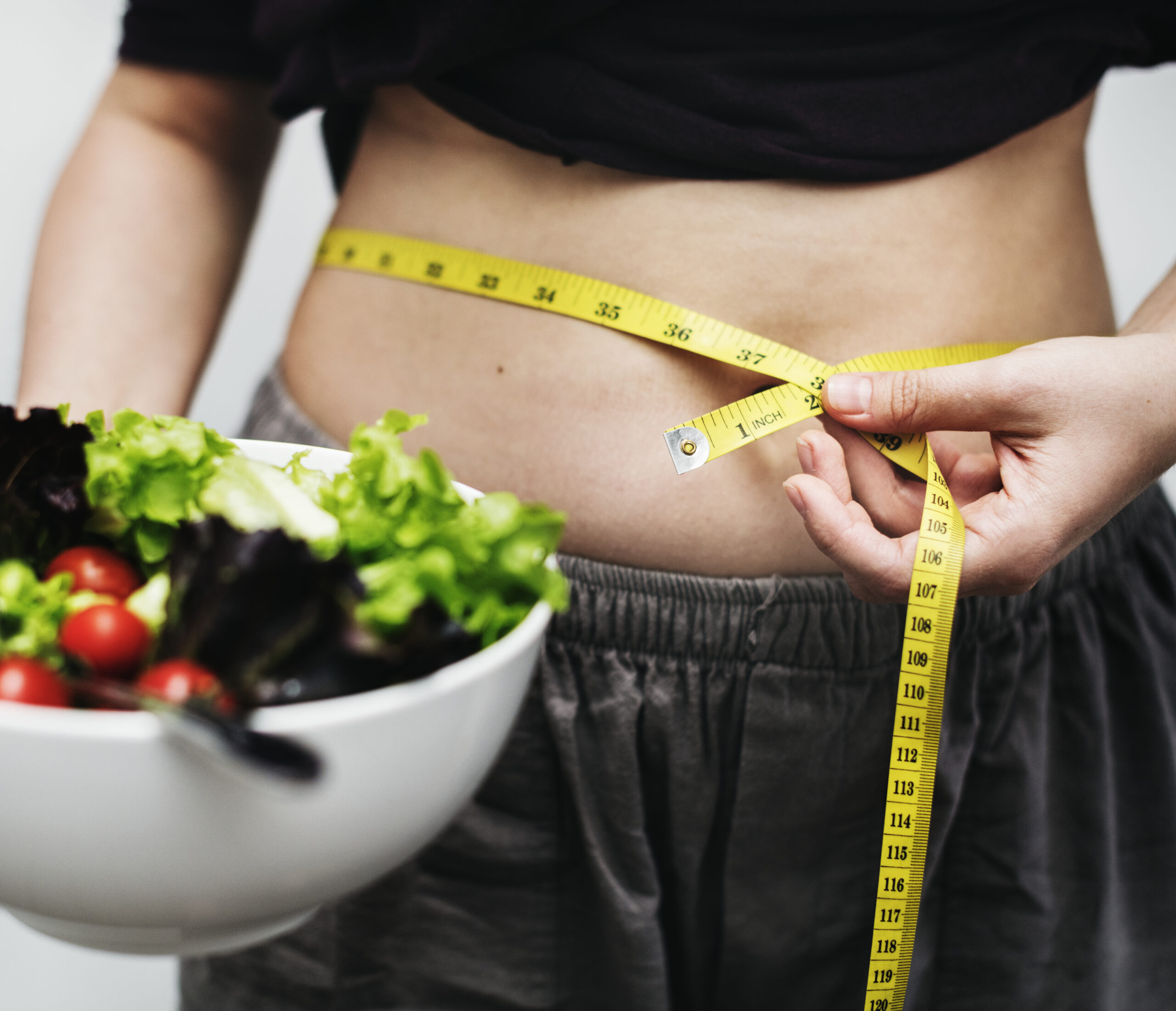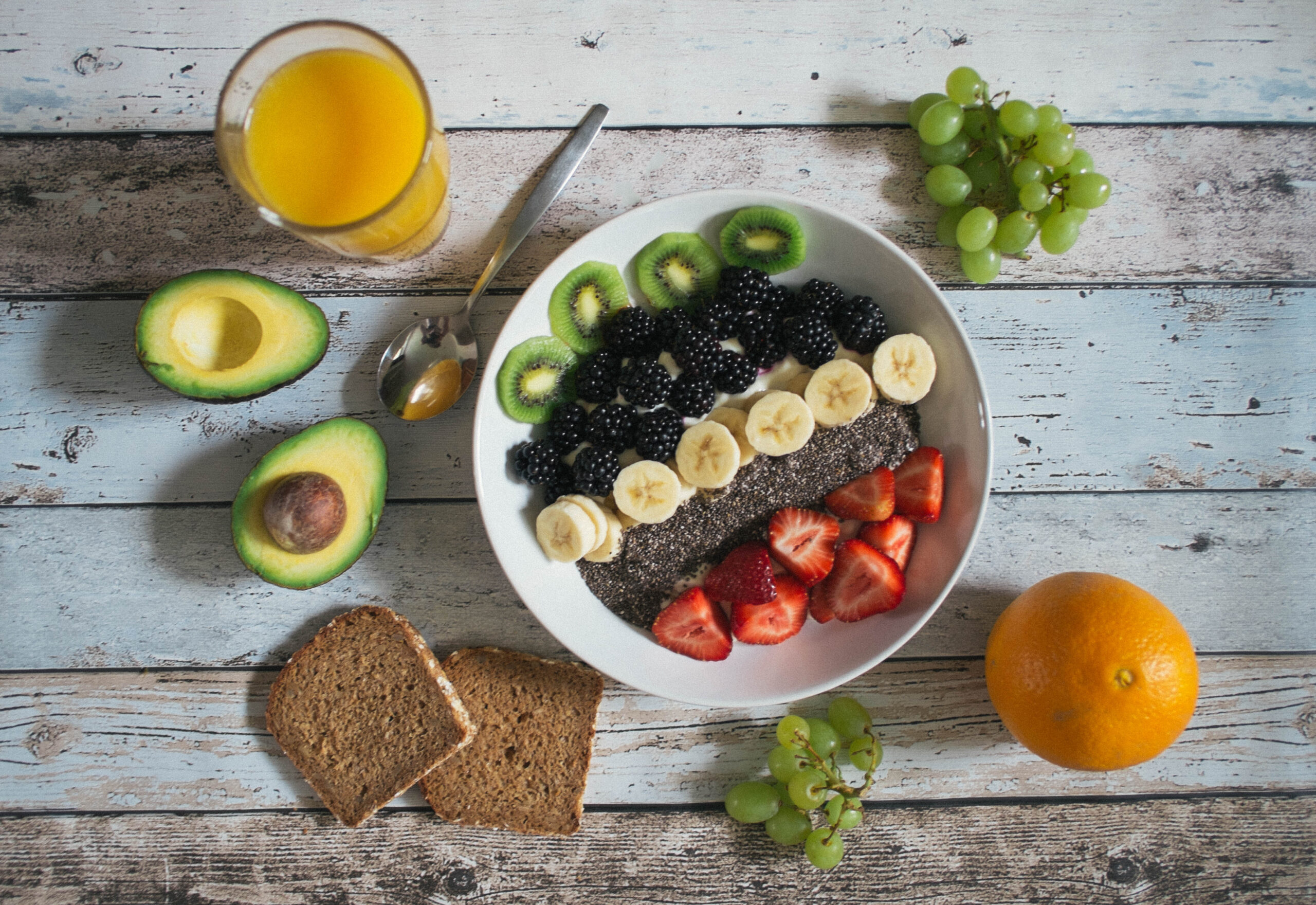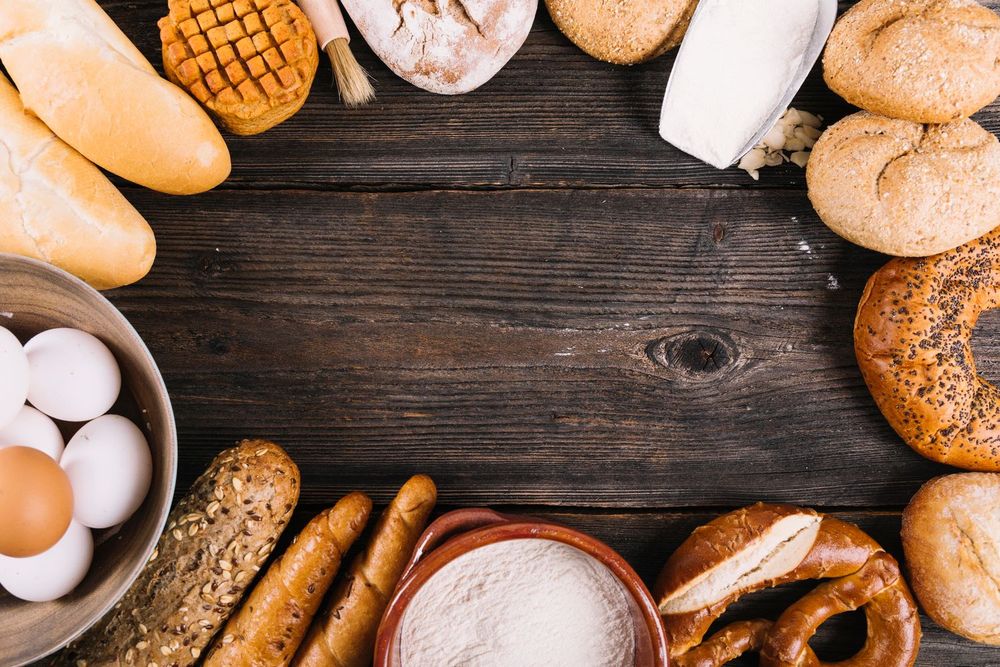Carbohydrates: Simple and Complex
Carbohydrates are an essential macronutrient that should be consumed. There are 2 types of carbohydrates: simple and complex.
Simple carbs are mainly sugars. Some are found naturally in nutrient-dense foods such as fruits and milk products. However, they are also found in bad carbs such as candies, sugar tables, pop and other soda drinks, and fruit juice concentrate.
On the other hand, complex carbohydrates contain more nutrients than simple carbs. Fibers and starch are known as complex carbs. They are long-chain molecules that don't increase blood sugar levels in the body quickly, so they are a good choice to include in the daily diet. Some complex carbs are whole grains such as oats, brown rice, and whole wheat pasta, or bread, fruits, vegetables, and legumes.
Our body uses carbohydrates as a main source of energy. Carbohydrates are broken down into glucose and used by our body and brain as a primary energy source. Excess glucose is stored in the liver and muscles in the form of glycogen.
The recommended intake of carbs should be between 45% and 65% total calories. Consuming carbs in excessive amounts, more than 65%, would put our health at risk and lead to several health issues such as diabetes, obesity, and liver-related diseases.
The Liver

The liver is a vital organ and one of the largest organs in our body. The liver is responsible for over 600 functions in our body. The most known functions are listed below:
- Bile production. Bile is a fluid that has a role in digesting and absorbing fats in the small intestine.
- Filters blood circulating in the body and removes toxins, by-products, and other harmful substances.
- Regulates blood clotting by the use of vitamin K which can only be absorbed with the help of bile produced by the liver.
- Removes excess glucose and stores it in the form of glycogen. Once the body is low in glucose, the liver breaks down glycogen back into glucose.
Deterioration of the liver means an effect on numerous body functions that are performed by the liver. It’s crucial to shed light on the reasons that may affect the liver and to be aware of how to keep your liver healthy.
Effect of a High Carb Diet on the Liver

When you consume a high-carb diet, your blood sugar levels spike and get too high. This leads to your body making more insulin which in return tells our brain that there is glucose circulating in our body. In response, our cells store the extra glucose as fat.
Fat will be accumulated and stored in different parts of our body, mainly the liver and in the center of our body known as adipose tissue. Fat stored in adipose tissue, leads to weight gain and obesity.
Fat accumulation affects our liver and leads first to nonalcoholic liver disease which is linked to other metabolic diseases such as hypertension, triglycerides, high cholesterol, diabetes, and insulin resistance.
Lifestyle Factors to Improve Fatty Liver Disease:
Knowing the importance of the liver and its role in different body functions is essential to maintain our nutrition and to keep it healthy and prevent problems from occurring due to poor nutrition.
A high-carb diet is one of the main reasons leading to liver problems such as insulin resistance, obesity, high cholesterol, and diabetes.
It is a cycle. Due to the accumulation of fats in the liver and adipose tissue, consuming too many carbs, especially refined carbs found in white rice, and pasta, as well as sugary foods, leads to obesity.
To prevent this cycle, it is important to follow the below nutrition intervention:
- Focus on consuming good quality carbohydrates, rather than only focusing on the quantity. This helps in having balanced blood sugar levels, preventing fat accumulation.
- Eat more of the complex carbohydrates found in whole grains, legumes, nuts, seeds, vegetables, and fruits
- Limit the intake of sugary drinks and products such as pop and soda drinks, candies, cakes, and fruit juice concentrates.
Diets That Can Help with Nonalcoholic Liver Disease:

Low carb diets have a positive effect on people suffering from the nonalcoholic liver disease because they:
- Decrease fat accumulated on the liver: Logically, decreasing the number of carbs in your diet will help you lower the amount of fat in the liver.
- Improve insulin sensitivity and reduce insulin levels: Consuming a low-carb diet decreases the amount of glucose in the blood, thus decreases insulin levels. As a result, insulin sensitivity becomes more efficient.












